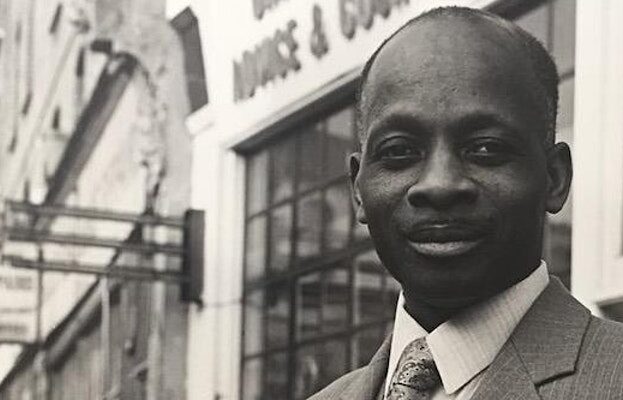
Atlantic Railton: LIVE is an extension of a new sound work by the artist Ain Bailey, commissioned by Serpentine for Listening to the City.
On 10 September, join Ain Bailey and interdisciplinary writer, artist, editor and curator Imani Robinson for Atlantic Railton: LIVE.
This live programme is an extension of Bailey’s new sound work, Atlantic Railton. Robinson will perform a lyrical response that draws on transcripts from Bailey’s commission, bringing in new reflections from spatial politics, architecture and Black geographies, alongside a constellation of voices, sounds and music from Bailey’s original composition.
Following the performance there will be a live DJ set by Rabz Lansiquot.
About Atlantic Railton
Atlantic Railton takes its name from Atlantic Road and Railton Road in Brixton, South London. Home to significant Black British intellectuals and activists including C.L.R James and Olive Morris, both locations were also the meeting points for various social movements and community groups including the Black Panthers, Brixton Black Women’s Group, and where the Brixton uprising took place in 1981. Bailey draws on these histories, weaving familial and personal relationships with different sites of community organising that were active between the early 1970s to the early 2000s; including Brixton Neighbourhood Community Association, Big Up and Lambeth Women’s Project.
The piece brings together a series of intimate conversations led by the artist’s collaborators Sharon Elliott, Claudette Parry, Ego Ahaiwe Sowinksi and Marc Thompson that sonically reflect on the memories, actions and relationships held in these sites of community care and resistance. The sound composition is a constellation of the collaborator’s voices, new field recordings from the sites referenced, archival sounds of protest and traditional steel-pan songs played by Matthew Philip from Mangrove Steelband.
Atlantic Railton is a dedication to people and places that are no longer with us, tenderly evidencing the experiences of belonging and connection held in these spaces, which communities continue to feel the effects of today.
